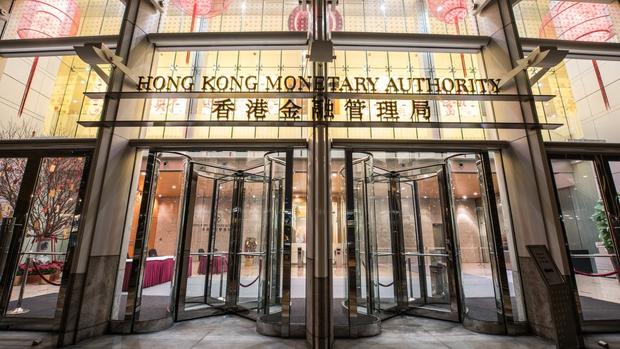 This undated photo shows the building of the Hong Kong Monetary Authority. (PHOTO / IC)
This undated photo shows the building of the Hong Kong Monetary Authority. (PHOTO / IC)
SHANGHAI/HONG KONG – Investors who have exploited Hong Kong's cheap interest rates all year to fund other trades globally are finding that the window is closing as local cash conditions tighten and the city's lenders come closer to raising the cost of borrowing.
Cash has fled from Hong Kong dollars this year as small depositors to big money managers search for better returns, or "carry", outside the Asian financial hub, where interest rates have lagged global benchmarks.
A dearth of new stock market listings has kept capital away, too, after a couple of boom years.
READ MORE: HK banks maintain best lending rates despite HKMA hike
The Hong Kong Monetary Authority (HKMA), the city's de-facto central bank, has spent this year buying Hong Kong dollars and raising its benchmark repo rate at record speed, trying to staunch the flow – thus reducing balances in the interbank system by more than half in the past three months.
When everyone's excess cash becomes smaller and smaller, everyone tries to build some cushion, and that means they need to pay more for it. Banks' cost of funding will go up.
Patrick Law, head of Asia-Pacific FX and North Asia local markets trading at Bank of America.
The pressure has kept the Hong Kong dollar pinned to the weakest end of its trading band since May. Yet traders and market pricing suggest that it will soon start to press on banks, until they pass it on to borrowers and the economy.
"Indirectly, that will be the end game," said Patrick Law, head of Asia-Pacific FX and North Asia local markets trading at Bank of America.
"When everyone's excess cash becomes smaller and smaller, everyone tries to build some cushion, and that means they need to pay more for it. Banks' cost of funding will go up," he said. "So, at some point they will want to restore their profit margin by raising the lending rate."
Interbank rates are already on the march, with the benchmark one-month Hong Kong Interbank Overnight Rate up nearly 60 basis points (bps) in three weeks. The gap over comparable US dollar rates in London has narrowed to 106 bps, from a three-year high of more than 140 bps in July.
Forwards pricing HKDFWD= suggests the gap might close further over the next few months as Hong Kong rates play catch up, while there is a bit of a pause in US hikes.
ALSO READ: HK has strong capacity to maintain dollar peg, says Chan
"Now that the gap has narrowed ... the carry-led outflow probably will slow," said Wang Ju, head of Greater China FX and rates strategy at BNP Paribas. "This is particularly true, given the market now thinks Fed has reached the max hawkishness."
Prime rates
Hong Kong has run what it calls the Linked Exchange Rate System for nearly 40 years, pegging the local currency to the US dollar and moving the city's base repo rate in lockstep with the US Federal Reserve.
Carry opportunities open up whenever market-set local rates in Hong Kong differ from dollar rates, and this year's outflows are a reversal of inflows, especially through 2020, when the pandemic saw short-term US rates near zero in a hurry.
The speed and volume at which the HKMA is buying local currency to defend the peg has revived periodic and unsuccessful speculation that the exchange rate system is at risk of breaking. Most economists and market participants see it as the policy in operation and no threat to markets' functionality, even if the liquidity drop as a result has been precipitous.
Commercial banks' aggregate reserve balances at the HKMA have fallen from HK$457.4 billion last September to HK$144.8 billion on Wednesday. The aggregate balance, the key gauge of cash in the banking system, will decrease to HK$129.293 billion on Aug 5, an HKMA spokeswoman said on Thursday.
Analysts said it is banks that are under the most strain as they have so far kept their own main loan rates steady. Top lender HSBC held its best rate at 5 percent in July.
ALSO READ: HK financial system to remain stable despite US rate hikes, officials say
"The pressure is building, but it's just not fully reflected in prime rates, which will change everything yet," said Natixis' senior economist, Gary Ng, since it would flow through to the economy via businesses and borrowers.
A deeper cash drought – if the aggregate balance were to drop below HK$100 billion – or another hefty Fed hike in November might be the trigger for that.
"A sudden shot-up seems unlikely... (but) we expect 1-month Hong Kong dollar HIBOR to climb further and banks will probably raise the prime rate after the Fed meeting in September," said Ken Cheung, chief Asia FX strategist at Mizuho in Hong Kong.


